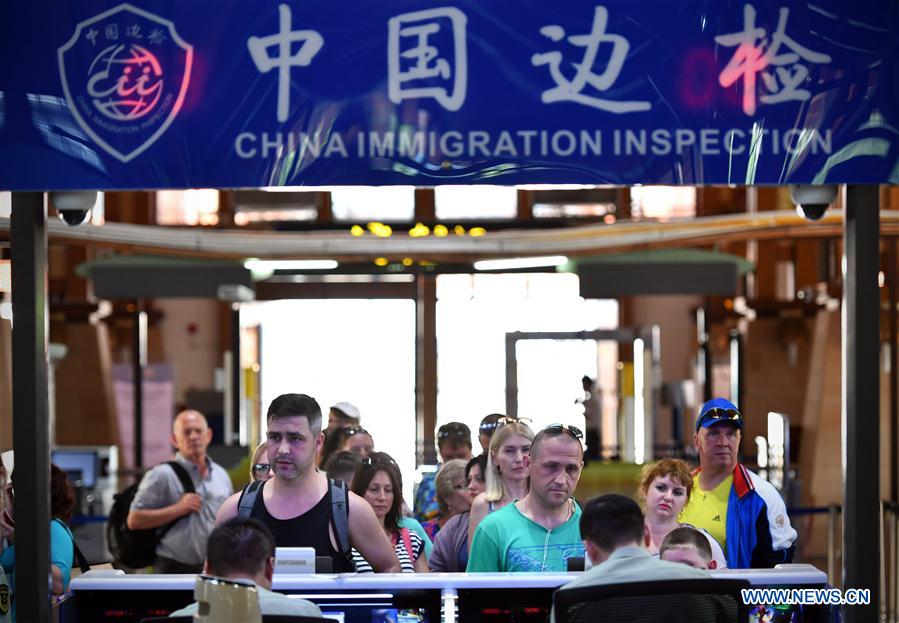Hainan to give foreign visitors access to Facebook, Twitter
Global Times
1529678649000

Russian tourists arrive at an immigration inspection checkpoint at Fenghuang International Airport in Sanya, South China's Hainan Orovince, June 1, 2018. (Photo: Xinhua)
South China's Hainan Province plans to build special zones for overseas tourists with unrestricted access to Facebook, Youtube and Twitter, according to a document released by the provincial government.
"The three-year plan to improve tourism internationalization in Hainan (2018-20)" was issued by the General Office of People's Government of Hainan Province this month and has already been delivered to government departments, cities and counties around Hainan, according to hainan.gov.cn, the official website of the provincial government."Hainan plans to rely on two major cities for tourism: Haikou (the provincial capital) and Sanya, and establish designated zones for foreign tourists, where foreigners can use foreign social media like Facebook, Twitter and YouTube," the document said.
The policy has symbolic meaning, said Zhang Lingyun, director of the Tourism Development Academy at Beijing Union University.
"Just like during the initial stage of the country's reform and opening-up in 1978, special rights and services were given to foreigners to attract them," Zhang told the Global Times on Friday.
"The special services may be first provided at hotels and restaurants receiving foreigners, but it will be gradually extended, and local residents may use Facebook and Twitter as well," he predicts.
However, the Hainan government should not expect this policy alone to attract large numbers of foreign travelers, as it also depends on the quality of services, Zhang said.
By 2020, Hainan plans to increase the number of foreign visitors to 2 million a year, and will try to bring in 50,000 migrant workers with English language skills from countries like the Philippines, Laos, Vietnam, Cambodia, Myanmar and Nepal, the document said.


